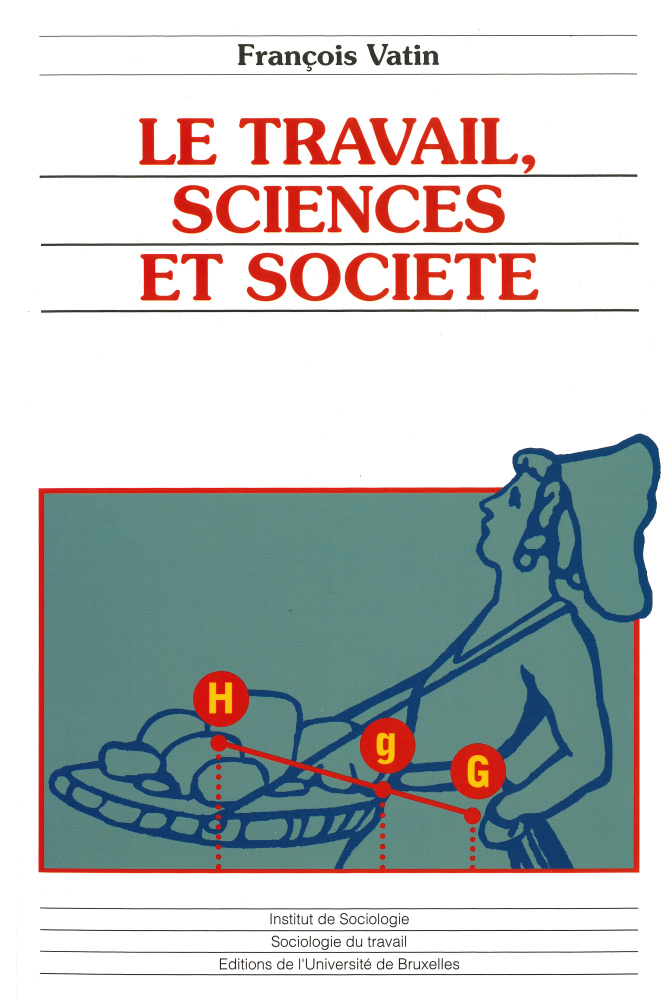Le travail, sciences et société
Essais d'épistémologie et de sociologie du travail
Première édition
Depuis quelques années s’est développé un débat sur la possible "fin du travail". Loin de chercher à fournir une réponse de plus à cette question d’école, ce livre met en ordre un ensemble de réflexions issu de vingt années de recherches sur le thème du travail. Lire la suite
Cette réflexion croise une expérience sociologique alimentée par des recherches de terrain et une démarche épistémologique portant sur deux siècles d’histoire des sciences du travail.
Ce dialogue entre l’épistémologie et la sociologie du travail montre à quel point les débats contemporains sont encore marqués par les difficiles conditions d’émergence, au début de ce siècle, des sciences sociales du travail. Celles-ci continuent à porter en héritage, souvent à leur insu, une longue tradition d’étude du travail qui remonte au moins à la fin du XVIIIe siècle. Dans cette tradition, le travail comme objet social ne peut pas être dissocié de sa dimension naturelle, saisie d’abord par la physique, puis par la physiologie et la psycho-physiologie.
L’hypothèse fondatrice de ce livre est qu’un bilan raisonné de cette histoire des idées est nécessaire à la compréhension des formes modernes du travail et des débats sociaux qu’elles soulèvent.
Spécifications
- Éditeur
- Éditions de l'Université de Bruxelles
- Auteur
- François Vatin,
- Collection
- Sociologie et anthropologie | n° 4
- ISSN
- 25935895
- Langue
- français
- Site web ressource
- Digithèque de l'ULB
- Catégorie (éditeur)
- > Sociologie & Anthropologie
- BISAC Subject Heading
- SOC026000 SOCIAL SCIENCE / Sociology
- Code publique Onix
- 06 Professionnel et académique
- CLIL (Version 2013-2019 )
- 3080 SCIENCES HUMAINES ET SOCIALES, LETTRES
- Subject Scheme Identifier Code
- Classification thématique Thema: Sociologie
Livre broché
- Date de publication
- 01 avril 2008
- ISBN-13
- 978-2-8004-1412-6
- Ampleur
- Nombre de pages de contenu principal : 272
- Code interne
- 1412
- Format
- 160 x 240 x 17 cm
- Poids
- 479 grammes
- ONIX XML
- Version 2.1, Version 3
Google Livres Aperçu
Sommaire
- Avant-propos | Aude MERLIN
- PREMIÈRE PARTIE – Système institutionnel et vie politique en Russie aujourd'hui
- Peut-on parler d’État de droit dans la Russie actuelle ? | Katlijn MALFLIET
- La nature du régime politique de la Russie. Analyses constitutionnelles | Jean-Pierre MASSIAS
- Le parti dominant en Russie. Quelles perspectives ? | Vladimir GUELMAN
- DEUXIÈME PARTIE – Le fédéralisme russe à l’épreuve nord-caucasienne
- Le Nord-Caucase au miroir du fédéralisme russe | Aude MERLIN
- La politique russe en Tchétchénie de 1994 à 2006. Analyse des raisons d’un échec | Céline FRANCIS
- TROISIÈME PARTIE – Les relations entre pouvoir économique et pouvoir politique en Russie aujourd’hui
- Le retour de l’État producteur en Russie | Cédric DURAND
- Les interactions entre pouvoirs économique et politique en Russie | Nina BACHKATOV
- QUATRIÈME PARTIE – La société russe face au pouvoir
- Que pensent et disent les Russes de leur pouvoir ? | Alexeï LEVINSON
- La montée des mouvements de protestation citoyens face à la fermeture du système politique. Un défi potentiel aux relations de pouvoir dominantes ? | Karine CLÉMENT
- La société civile en Russie face à la guerre en Tchétchénie | Anne LE HUÉROU
- Liste des auteurs

